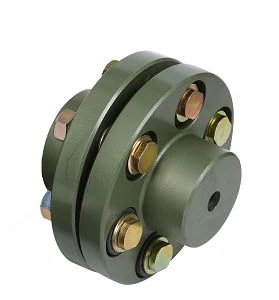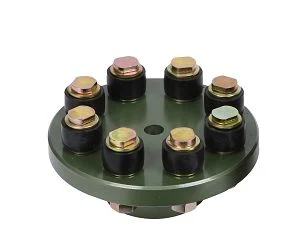Product Description
Sintered Iron Jaw Coupling Hubs Flexible Jaw Coupling Rubber Spider Coupler Powder Metallurgy Jaw Coupler
Product Description
Name: Powder metallurgy/L type claw coupling
Material: Powder metallurgy (pig iron) 45 steel aluminum alloy optional
Material: The rubber pad material is NBR (nitrile rubber)
The L-shaped claw coupling is similar to the plum CHINAMFG coupling and is cast from powder metallurgy material. It has the characteristics of economy, practicality, easy disassembly, light weight, high torque, and wear resistance.
1. L-shaped 3 jaw coupling (powder metallurgy coupling), powder metallurgy is a process technology that produces metal materials, composites, and various types of products by using metal powder (or a mixture of metal powder and non-metal powder) as raw materials, forming and sintering.
2. The powder metallurgy coupling strengthens the connection between the teeth and the main body, making the teeth of the coupling less prone to breakage, more durable, and with a longer service life. The later stage adopts phosphating treatment, which has a beautiful appearance.
3. The rubber pad of L-type 3 jaw coupling is made of NBR (nitrile rubber), which is mainly produced by low-temperature lotion polymerization. It has excellent oil resistance, high wear resistance, good heat resistance, strong adhesion and other characteristics.
Powder metallurgy is an important process for manufacturing high-tech materials. It combines material equipment with metal forming technology to form a special metal forming technology for manufacturing machinery and electrical parts, which is precise, efficient, low consumption, energy-saving, and inexpensive. It is widely used in fields such as automobiles, motorcycles, household appliances, office machinery, agricultural machinery, engineering machinery, and electric tools.
L-type coupling models include L-035 L-050 L-070 L-075 L-090 L-095 L-099 L-100 L-110 L-150
L-type couplings are used in the mechanical field: hydraulic pumps, centrifugal pumps, small generators, blowers, fans, ventilators, belt conveyors, screw conveyors, thin plate bending machines, woodworking machinery, grinders, textile machines, similar machines, cutting machines, winches, generators, cement mixers, cable cars, cable winches, centrifuges, excavators, piston pumps, packers, paper making machinery, compressors, screw pump shearing machines, forging machines, stone crushers, piston compressors, vertical roller presses, welding machines, tribute plastic crushers.
Detailed Photos
Cast lron Jaw Coupling Hubs can help connect shafts together for heavy shock loads in variable-speed andvariable-torque applications. A complete assembly requires 2 hubs and 1 jaw coupling spider, available separately. Nitrile Butadiene Rubber and polyurethane rubber are available to choose.Our company’s powder metallurgy L coupling is include: L035 series, L050 series, L070 series, L075 series, L090 series, L095 series, L099 series, L100 series, L110 series, L150 series. Its product features are economical, convenient and light weight. Without lubrication, the products are exported to more than 40 countries. Rubber gaskets are made of high quality rubber products, oil resistant and friction resistant. Our company also contracts for powder metallurgy and other products.
Service tenet: user satisfaction, quality assurance, integrity cooperation
Product Parameters
Packaging & Shipping
After Sales Service
Service tenet: user satisfaction, quality assurance, integrity cooperation
/* January 22, 2571 19:08:37 */!function(){function s(e,r){var a,o={};try{e&&e.split(“,”).forEach(function(e,t){e&&(a=e.match(/(.*?):(.*)$/))&&1

What are the real-world applications of flexible couplings in various industries?
Flexible couplings are widely used in a variety of industries to transmit power and motion between rotating shafts while accommodating misalignments and reducing vibrations. Some of the real-world applications of flexible couplings include:
- Industrial Machinery: Flexible couplings are extensively used in industrial machinery such as pumps, compressors, fans, mixers, and conveyors. They help transmit power from motors to driven equipment, while absorbing misalignments and reducing shock loads and vibrations.
- Automotive: In the automotive industry, flexible couplings are used in various applications, including drive shafts, steering systems, and engine accessories. They help transmit power and motion while allowing for misalignment and reducing torsional vibrations.
- Aerospace: In aircraft and aerospace applications, flexible couplings are used in engine systems, landing gear, and flight control systems. They provide reliable power transmission while accommodating misalignment and reducing vibrations in the demanding aerospace environment.
- Marine: Flexible couplings are used in marine propulsion systems to connect the engine to the propeller shaft. They help transmit power and motion while compensating for shaft misalignment and reducing vibrations in marine vessels.
- Renewable Energy: In wind turbines and solar tracking systems, flexible couplings are used to transfer power and motion between the turbine or solar panel and the generator. They allow for misalignment caused by wind and sun direction changes, ensuring optimal energy conversion.
- Oil and Gas: In the oil and gas industry, flexible couplings are used in pumps, compressors, and drilling equipment. They provide reliable power transmission while accommodating misalignments and reducing vibrations in harsh and demanding oilfield environments.
- Mining and Construction: Flexible couplings are used in heavy-duty mining and construction equipment, including excavators, bulldozers, and loaders. They help transmit power from engines to drive systems while compensating for misalignments and reducing vibrations in rugged and challenging environments.
- Food and Beverage: In food processing and packaging machinery, flexible couplings are used to transmit power and motion while meeting strict hygiene and safety requirements. They help prevent contamination while accommodating shaft misalignments.
- Medical Equipment: Flexible couplings are used in medical devices and equipment, including imaging machines and robotic surgical systems. They help transmit motion and power while reducing vibrations and maintaining precision.
- Textile Industry: In textile manufacturing machines, flexible couplings are used in spinning, weaving, and dyeing processes. They help transmit power efficiently while accommodating misalignments and reducing vibrations during high-speed operation.
These are just a few examples of the diverse applications of flexible couplings in various industries. Their ability to enhance power transmission efficiency, accommodate misalignments, and reduce vibrations makes them a versatile and indispensable component in modern machinery and equipment.

Can flexible couplings be used in precision manufacturing equipment, such as CNC machines?
Yes, flexible couplings can be used in precision manufacturing equipment, including CNC (Computer Numerical Control) machines. CNC machines require high accuracy and precision during operation to produce complex and intricate parts. Flexible couplings play a vital role in such equipment by providing various benefits that enhance their performance and reliability.
- Compensation for Misalignment: CNC machines often have multiple moving parts and axes that need precise alignment. Flexible couplings can accommodate small misalignments between these components, ensuring smooth and reliable power transmission without inducing additional stress or strain on the system.
- Vibration Damping: Precision manufacturing requires minimizing vibrations that could affect the quality of the finished product. Flexible couplings with damping properties can absorb and dissipate vibrations, resulting in better surface finishes and accuracy of the machined parts.
- Torsional Flexibility: CNC machines may experience torque fluctuations during acceleration, deceleration, or tool changes. Flexible couplings with torsional flexibility can handle these variations and prevent torsional vibrations from affecting the machining process.
- Backlash Compensation: Some types of flexible couplings, such as beam couplings, offer minimal or near-zero backlash. This characteristic is essential in CNC machines, as it helps maintain positional accuracy during direction changes and reversals.
- High Torque Transmission: CNC machines may require high torque transmission capabilities, especially in heavy-duty cutting or milling operations. Flexible couplings can handle substantial torque loads while still providing flexibility to address misalignments.
- Reduced Maintenance: With the ability to absorb shocks and compensate for misalignment, flexible couplings can extend the life of other mechanical components in the CNC machine, reducing overall maintenance requirements and downtime.
It’s important to select the appropriate type and size of flexible coupling based on the specific requirements of the CNC machine, including torque, speed, misalignment, and environmental conditions. Regular maintenance and inspection of the flexible couplings will ensure optimal performance and contribute to the overall precision and efficiency of the CNC machine.

Can flexible couplings be used in corrosive or harsh environments?
Yes, flexible couplings can be designed and selected to be used in corrosive or harsh environments. The choice of materials and coatings plays a crucial role in ensuring the coupling’s durability and performance under challenging conditions.
Corrosion-Resistant Materials:
In corrosive environments, it is essential to use materials that can withstand chemical attacks and oxidation. Stainless steel, specifically grades like 316 or 17-4 PH, is commonly chosen for flexible couplings in such situations. Stainless steel offers excellent corrosion resistance, making it suitable for applications where the coupling may come into contact with corrosive substances or moisture.
Special Coatings:
For certain harsh environments, coupling manufacturers may apply special coatings to enhance the coupling’s corrosion resistance. Examples of coatings include zinc plating, nickel plating, or epoxy coatings. These coatings provide an additional layer of protection against corrosive agents and help extend the coupling’s lifespan.
Sealed Designs:
In environments where the coupling is exposed to contaminants like dust, dirt, or moisture, sealed designs are preferred. Sealed flexible couplings prevent these substances from entering the coupling’s internal components, thus reducing the risk of corrosion and wear. The sealed design also helps to maintain the coupling’s performance over time in challenging conditions.
High-Temperature Applications:
For harsh environments with high temperatures, flexible couplings made from high-temperature resistant materials, such as certain heat-resistant stainless steels or superalloys, can be used. These materials retain their mechanical properties and corrosion resistance even at elevated temperatures.
Chemical Resistance:
For applications where the coupling might encounter chemicals or solvents, it is essential to select a coupling material that is chemically resistant. This prevents degradation and ensures the coupling’s integrity in such environments.
Specialized Designs:
In some cases, where the environment is exceptionally harsh or unique, custom-designed flexible couplings may be necessary. Engineering a coupling to meet the specific demands of the environment ensures optimal performance and reliability.
Consultation with Manufacturers:
When considering flexible couplings for corrosive or harsh environments, it is advisable to consult with coupling manufacturers or engineering experts. They can provide valuable insights and recommend suitable materials, coatings, and designs based on the specific operating conditions.
Summary:
Flexible couplings can indeed be used in corrosive or harsh environments, provided the appropriate materials, coatings, and designs are chosen. Stainless steel, sealed designs, and special coatings are some of the solutions that enhance the coupling’s corrosion resistance and performance. It is essential to consider the specific environment and application requirements when selecting a flexible coupling to ensure optimal functionality and durability in challenging conditions.


editor by CX 2024-03-01